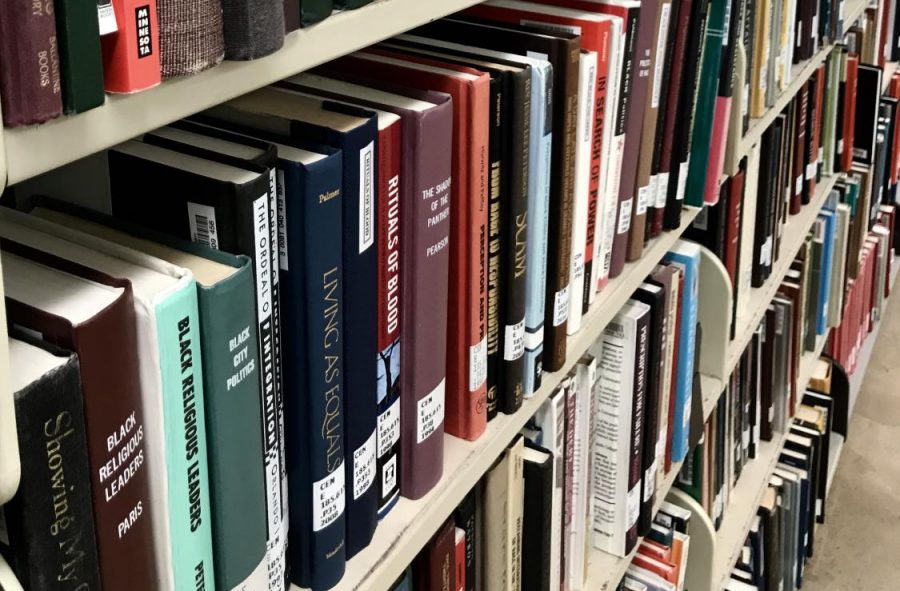With a newly elected Democratic majority, we’re on the cusp of dramatic legislative change. Now that the president has control of both the House and Senate, Congress can pass substantive items that could be extremely jarring. Democrats have already proposed statehood for D.C. and a third round of stimulus checks, will soon vote on raising the minimum wage and will likely later debate statehood for Puerto Rico, major tax reform, the existence of the electoral college, socialized medicine and student debt cancellation. Social unrest over the course of the past year and the ongoing pandemic have only expedited the timeline for these issues reaching the floor of Congress.
Such stark change always generates backlash from opponents. One point, however, perpetually enters the conversation regardless of the issue. This, of course, is the Founding Fathers argument, which is particularly noticeable in the current debates about the future of Washington, D.C. and the electoral college. It’s a laughably common phenomenon, with politicians and citizens alike consistently justifying their resistance to some proposed change because “the Founding Fathers intended for it to be this way.”
Why? Why do some Americans fetishize the Founding Fathers and their framework for the United States? It’s just that. Framework.
They didn’t establish a perfect nation, nor did they claim to.
The Constitution was meant to be amended. It’s not a biblical text we have to accept as an unalterable work sent from the divine. It’s a man-made document with provisions built into it for future change by the very men who drafted it. Different generations of Americans would face issues inherent to that period of time that the Founding Fathers recognized they couldn’t possibly have the foresight to address.
Despite this, the Constitution hasn’t been updated since the 27th amendment in 1992, which wasn’t even new legislation, rather a 200 year old proposal. Since its inception, amendments were passed over regular intervals, yet in the past 50 years only one amendment has been ratified. It’s almost like we’re too afraid to change it the further in time we get from the colonial era. Past generations made drastic changes, such as Prohibition or the abolition of slavery. These were shocks to the American system written into law by people who didn’t care about the opinions of colonial Americans. In contrast, today we meekly cower in the shadows of our country’s founders.
It’s like there’s a psychological belief that the United States is in its final form. We haven’t added a state for over half a century and have the perfect, round number of 50. We’re complete. If people don’t like something, then they’re anti-American whiners.
Contemporary Americans are valuing the perceived opinions of people who lived over two centuries ago. Why does that have a greater weight in political decision-making than current Americans? Sure, the Founding Fathers had reasons for establishing the Electoral College, but as we’ve seen, it’s not a perfect system. They had no empirical evidence as to its efficacy, so why do we perpetuate a tradition that makes little sense in modern times?
The Founding Fathers also intended for D.C. to be a federal district, but they could have never fathomed that it would be a city with a population larger than some states and no voting power in Congress. Ironically, both the Founding Fathers and D.C. residents are fighting against taxation without representation. These are just two examples of the countless debates in which the Founding Fathers take precedence over today’s people, and history is skewed or misunderstood to advance a partisan agenda.
Another counterpoint is that the U.S. has already deviated significantly from the vision of the Founding Fathers. In “Article the First,” James Madison proposed that no congressperson should represent more than 50,000 people, and yet elected officials have an average of roughly 750,000 constituents. No adjustments to the number of congresspeople based upon population have been made since 1911, further adding to the notion that we believe our country should remain static.
Thus, in attempting to make a historical argument, people are actually revealing how little they know about history and the wishes of the founders of the country. They’re just regurgitating the god-like image of the Founding Fathers that was force-fed to them in elementary school. What did we expect? We are the country that plastered the immortal faces of our presidents onto a mountainside, after all.
It seems as though this country is stuck on the rhetoric we’ve been told our entire lives that imagines the United States as an immutable, awe-inspiring entity. The U.S. is exceptional. We were the Little Engine That Could who defeated the greatest empire of the time. It’s a story of David vs. Goliath where the Founding Fathers drafted the Declaration of Independence, committing high treason and against all odds formed a country that would one day become a global superpower. Yes, it’s a fantastic story, but why does that mean that their vision was sufficient enough for the entire future of the country?
We are living in a completely different country than the one they imagined. They conceived a nascent society along the Atlantic coast where slaves counted as three-fifths of a person and women were not allowed to vote. Now, we are a racially diverse, modern country of over 300 million people. Yes, the Founding Fathers drafted an incredible base for a society that would prosper beyond their wildest fantasies. That doesn’t mean they created the perfect recipe for a constitutional democracy, or any society for that matter.
They have their place in American history, and now it’s time to let today’s generation make their imprint on history as well. Let’s tinker with the American system. We won’t always know how to best improve it, but being afraid to act is not how the Founding Fathers would have wanted us to live. We should carry forward their tradition of embracing change and fighting for ideals we believe in, and in doing so, hopefully “form a more perfect Union.”




